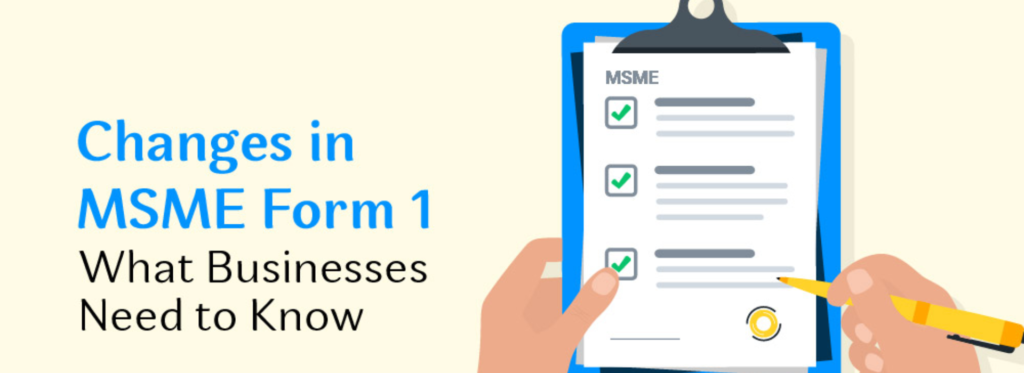
In the last couple of years, compliances are becoming dynamic with multi warding regulations. These require that businesses pay close attention to ever changing requirements as failing to do so may result in penalties and disrupt the seamless functioning of the company. A very pertinent compliance requirement for businesses working with Micro, Small and Medium Enterprises, (MSMEs) is the MSME FORM 1. This form is a payment related compliance form and is required by the “Companies (Furnishing of information about Payment to Micro and Small Enterprise Suppliers) Order 2019”. The objective of this form is to aid in ensuring prompt payments to MSMEs and enhancing transparency in payments in business transactions.
The Ministry of Corporate and Affairs has updated the MSME FORM 1 to strengthen the compliance framework as well as to safeguard fair trade practices. In this blog Cevious explains these changes and their business implications.
MSME FORM 1 is a biannual compliance requirement report under Code 405 of the Companies Act of 2013. This shall apply to all businesses that meet the following conditions.
Are hip with outstanding payments to worth over 45 days to any MSME suppliers for goods or services.
The main aim of the form is to monitor and ease the payment cycle by most large firms to MSMEs thereby assisting to ensure that all small businesses do not end up being financially strained due to tardy payment cycles.
Alterations in MSME Form 1
The MSME Form 1 now has updated MSME reporting requirements due to the Ministry of Corporate Affairs (MCA) updates. Here’s the breakdown of what organizations must comply with:
1. Increased Information Obligations
The previous requirements only requested information on the entire payable amount to MSMEs. The updated form now expects:
This modification enforces more transparency and compels a business to provide reasons on payment delays to the MSME vendors.
2. Inclusion of PAN and Aadhaar Information
For more accurate and reliable data, the company must give the supplied PAN and Aadhaar information of the MSME vendors. This is part of the government policy changes aimed at aligning compliance frameworks to Aadhaar-based systems.
3. Changes in Submission Deadlines
Filing deadlines are no longer soft due on the 30th April and the 31st October; these dates have been emphasized as strict deadlines. Under the new guidelines, these deadlines will attract stiffer penalties and scrutiny when breached.
4. Mandatory E-signature
To improve the credibility and responsibility of the document, manual handwritten signatures have been removed by the previous MSME Form 1. The new requirements integrate e-signatures from the company’s directors or key managerial personnel (KMP).
The modifications made in MSME Form 1 aim to do the following:
However, there has been an increase in compliance obligations of a business. Businesses will need to:
Profitability and ROI sustaining on compliance enforcement policies set forth. Approach
Supporting growth, we understand how difficult it is to impose restrictions and the undergoing complexities that come with compliance. As experts in regulatory changes, our team will work with you to:
With Cevious on your side, your business remains compliant, avoids penalties, and nurtures valuable relationships with MSME vendors—all fundamental to a viable and ethical supply chain.
Compliance with MSME Form 1 is no longer a mundane task. This is now an effective mechanism for ensuring appropriate payments to MSMEs while also guaranteeing transparency in interactions. The recent developments with the emphasis on detailed reporting and digital verification and no soft deadlines indeed require a proactive and compliant approach from companies.
At Cevious, we strive to make this journey seamless for you by providing the guidance and resources necessary to remain ahead of the curve. Reach out to us today and find out how we can help you with MSME Form 1 compliance and other business regulations.

4.9 google Reviews
Lorem ipsum dolor sit amet, consectetur adipiscing elit. Ut elit tellus, luctus nec ullamcorper mattis, pulvinar dapibus leo.